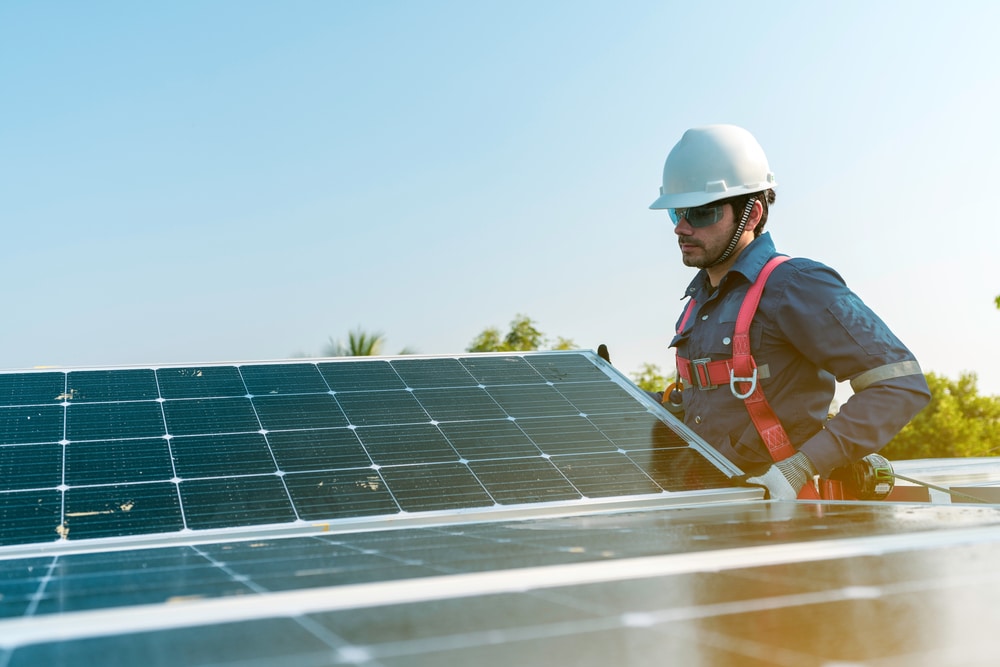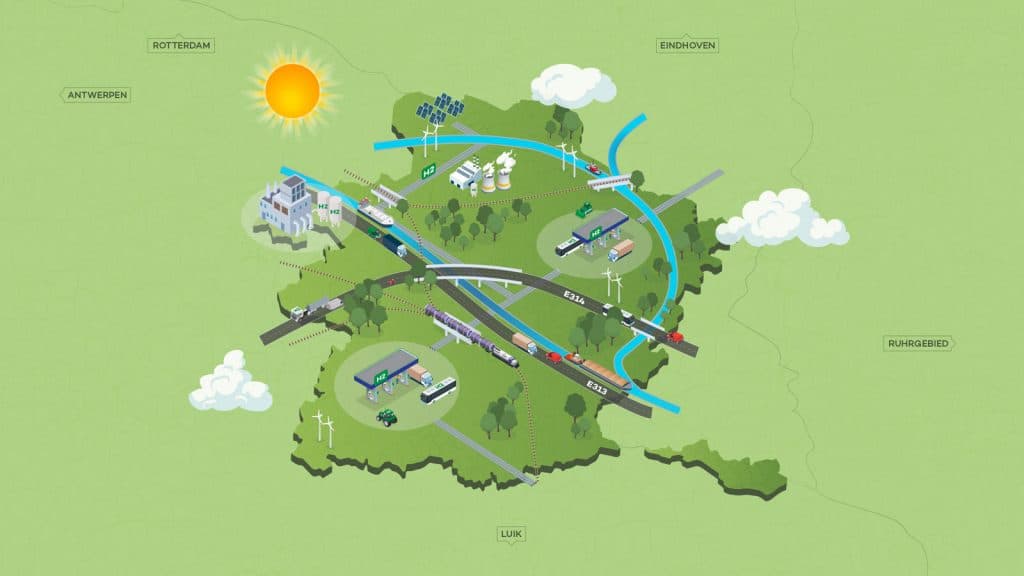
EMR Hydrogen Booster

Hydrogen is a gas that can be generated from renewable energy through water electrolysis. This is the reason why it will play a key role in the carbon-free energy system of the future. This is because molecular energy carriers offer flexibility as storage mediums for energy. What’s more, they also help to balance the variability of a largely renewable energy system. But most importantly, hydrogen can help decarbonise sectors. And this in sectors where electrification is enormously difficult or expensive, such as the industrial sector or heavy freight transport.
The EMR H2 Booster consortium
A consortium of nine parties has joined forces to boost the development of clean hydrogen innovations, demonstrations, and knowledge sharing in the Meuse-Rhine region. This is a first step towards the large-scale rollout of a clean hydrogen economy.
The EMR H2 Booster consortium’s scope of work consists of:
- Flemish Limburg
- Dutch Limburg
- Aachen region
- Liège
The project partners will take part in cross-border to facilitate and accelerate the emergence of the hydrogen economy in the region.
The consortium consists of regional development agencies, hydrogen cluster organisations, and a knowledge institute. It is how we can combine the extensive experience from the hydrogen sector with the knowledge of local SMEs.
Workflows
The project partners will be focusing on four workflows. First, a ‘mapping’ exercise will take place. It will allow the project to map the plans, roadmaps, visions, standpoints, R&D activities, industrial players, and competencies in the region. The next step will see the partners integrate the acquired knowledge into an online platform – the Digital Information Platform.
The insights gathered will form the basis of targeted matchmaking sessions, organised for the SMEs in the region. This is the second workflow. As part of this workflow, various cases will be defined and further developed. The cases will consist of consortiums of SMEs and other partners that have an ambition to collaborate hydrogen implementation. They will receive the necessary support throughout the project to enable them to take the next steps towards completion.
Within the framework of the third workflow, four events will take place: one in each region. Participants are given the opportunity to participate in inspiration sessions or demo sessions, as well as workshops on specific themes. On the one hand, these events enhance the knowledge of the SMEs involved. On the other hand, they serve as a source of inspiration for SMEs who might not be hugely involved in the hydrogen sector yet.
The fourth and last workflow focuses on the reduction of greenhouse gas emissions. Not just by switching to hydrogen, but also by further combining this with enhanced technological development, economic activities and job creation. To this end, the project partners will target a diverse growth of SMEs to include them in the ecosystem of the EMR H2 Booster project.
The ‘Interreg Euregio Meuse-Rhine’ programme is financing the EMR H2 Booster project. This programme receives support from the European Union’s ERDF. What’s more, the various partners receive co-financing from local governments, including the Dutch province of Limburg, the Dutch province of Noord-Brabant, the Dutch Ministry of Economic Affairs and Climate Policy, the Walloon government, and the German state government of North Rhine-Westphalia. The duration of the project is 18 months.
The project partners
- Stadt Aachen
- LIOF
- POM Limburg
- Cluster TWEED
- SPI
- IHK Aachen
- Universiteit Hasselt
- Waterstof Coalitie Limburg
- WaterstofNet
- Regio Parkstad (geassocieerde partner dat het project steunt)
The EMR H2 Booster project is being carried out under the Interreg VA Euregio Meuse-Rhine Programme, with 532 533 euros from the European Regional Development Fund (ERDF). The project is coordinated by WaterstofNet, with project partners Stadt Aachen, LIOF, POM Limburg, Cluster TWEED, SPI, IHK Aachen, Hasselt University, Hydrogen Coalition Limburg and associated partner Region Parkstad. With financial support from the Agency Innovation & Entrepreneurship (Vl), Province of Limburg (Be), Province of Limburg (Nl), Province of North Brabant (Nl), Ministry of Economic Affairs and Climate (Nl), Wallonie and Landtag Nordrhein-Westfalen.


